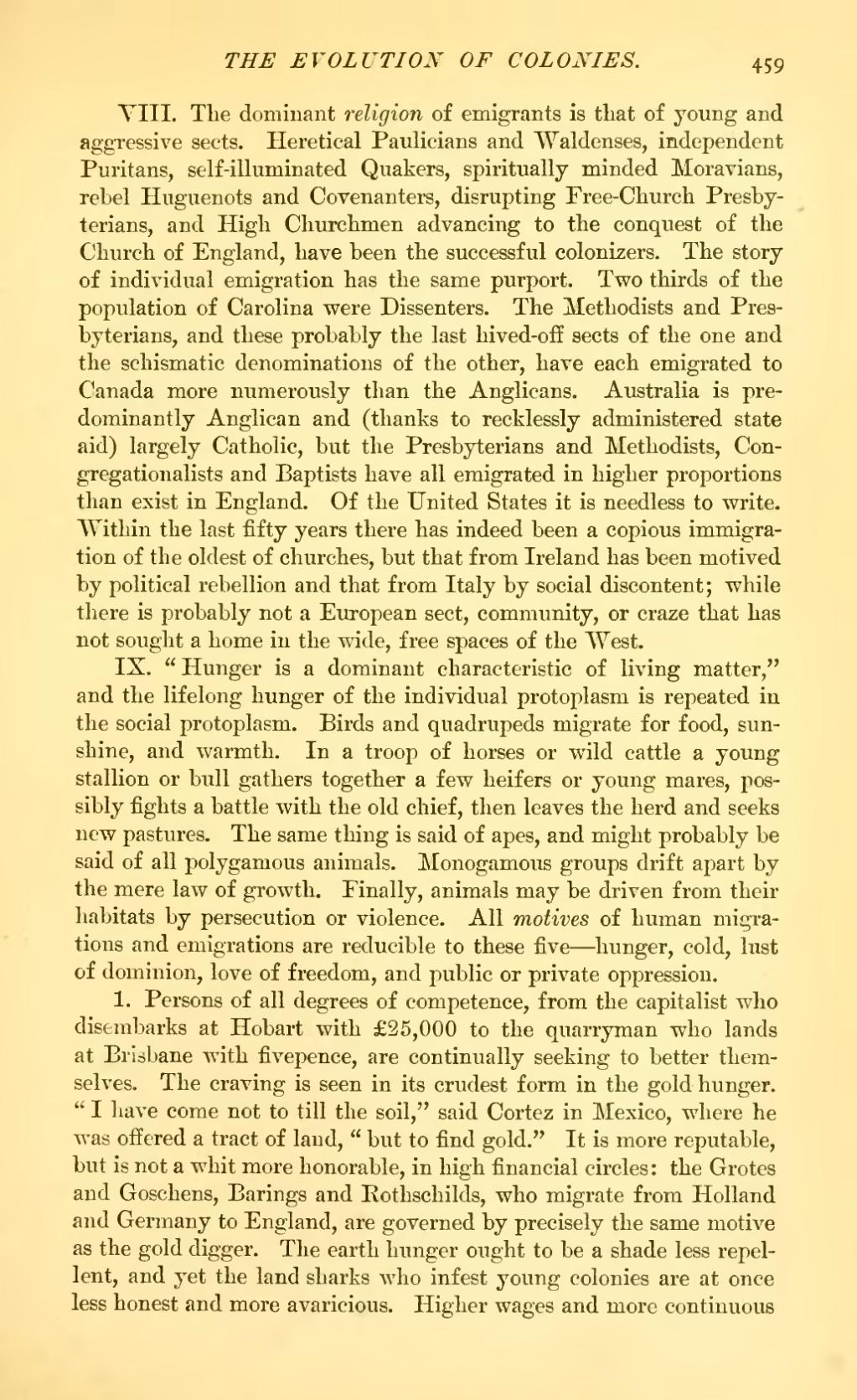VIII. The dominant religion of emigrants is that of young and aggressive sects. Heretical Paulicians and Waldenses, independent Puritans, self-illuminated Quakers, spiritually minded Moravians, rebel Huguenots and Covenanters, disrupting Free-Church Presbyterians, and High Churchmen advancing to the conquest of the Church of England, have been the successful colonizers. The story of individual emigration has the same purport. Two thirds of the population of Carolina were Dissenters. The Methodists and Presbyterians, and these probably the last hived-off sects of the one and the schismatic denominations of the other, have each emigrated to Canada more numerously than the Anglicans. Australia is predominantly Anglican and (thanks to recklessly administered state aid) largely Catholic, but the Presbyterians and Methodists, Congregationalists and Baptists have all emigrated in higher proportions than exist in England. Of the United States it is needless to write. Within the last fifty years there has indeed been a copious immigration of the oldest of churches, but that from Ireland has been motived by political rebellion and that from Italy by social discontent; while there is probably not a European sect, community, or craze that has not sought a home in the wide, free spaces of the West.
IX. "Hunger is a dominant characteristic of living matter," and the lifelong hunger of the individual protoplasm is repeated in the social protoplasm. Birds and quadrupeds migrate for food, sunshine, and warmth. In a troop of horses or wild cattle a young stallion or bull gathers together a few heifers or young mares, possibly fights a battle with the old chief, then leaves the herd and seeks new pastures. The same thing is said of apes, and might probably be said of all polygamous animals. Monogamous groups drift apart by the mere law of growth. Finally, animals may be driven from their habitats by persecution or violence. All motives of human migrations and emigrations are reducible to these five—hunger, cold, lust of dominion, love of freedom, and public or private oppression.
1. Persons of all degrees of competence, from the capitalist who disembarks at Hobart with £25,000 to the quarryman who lands at Brisbane with fivepence, are continually seeking to better themselves. The craving is seen in its crudest form in the gold hunger. "I have come not to till the soil," said Cortez in Mexico, where he was offered a tract of land, "but to find gold." It is more reputable, but is not a whit more honorable, in high financial circles: the Grotes and Goschens, Barings and Rothschilds, who migrate from Holland and Germany to England, are governed by precisely the same motive as the gold digger. The earth hunger ought to be a shade less repellent, and yet the land sharks who infest young colonies are at once less honest and more avaricious. Higher wages and more continuous
